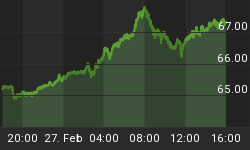Nothing moves markets these days like tariff battles, so reports Tuesday that the U.S. and China are actually holding private talks to prevent a full-blown trade war gave equities a bit of a breather, with global stock markets edging up along with gains for the U.S. dollar. But that breather was a short one—the game is back on, and worse than ever.
Watch European equities, which closed higher Tuesday but are already pulling back because major trade war news changes on a dime.
The highlight of Tuesday was a report from Bloomberg citing unnamed sources as saying that representatives of U.S. Treasury Secretary Steven Mnuchin and Chinese Vice Premier Liu He have been holding private talks in order to jumpstart negotiations to head off a full-blown trade war.
So, the idea of these private talks suddenly make markets feel safe and potentially catch a glimpse of the light at the end of this tunnel.
At the close Tuesday, the Dow had gained over 108 points, the S&P 500 was up nearly 14 points and Nasdaq—despite the tech sell-off—gained almost 42 points.
But the reprieve was a blip in the pan. Later on Tuesday, new reports crushed the optimism again when Trump’s advisers reportedly urged him not to pull any punches and instead of putting 10-percent tariffs on another $200 billion in Chinese goods, to slap them with 25 percent.
And it’s pointless right now to try to play this game. The administration’s final decision on this will come later this month, and until then, the back-and-forth will continue to be a heated schizophrenia.
Trump’s advisors are allegedly calling for an even harsher tariff package because the Chinese yuan has been nose-diving, losing 6 percent against the dollar since May, and Washington thinks Beijing is playing nasty with its currency as a tariff buffer. Related: Is There A Correlation Between Gold And The Yuan?
Markets in Asia closed mixed Tuesday in response to the grab bag of news.

(Click to enlarge)
Today, global markets will be reeling from Beijing responses to Washington in this latest (of many) exchanges.
Early Wednesday, Beijing of course vowed retaliation.
"U.S. pressure and blackmail won't have an effect. If the United States takes further escalatory steps, China will inevitably take countermeasures and we will resolutely protect our legitimate rights," Chinese Foreign Ministry spokesman Geng Shuang told a news briefing.
Speculators still fail to grasp the negotiation tactics used by Trump in order to gain concessions from American trading partners.
Responding to these tactics from an investment perspective is impossible largely because Trump’s trade policy is not a plan; rather, it’s a game in which he simply throws out a provocative idea and threat becomes policy, while the next step is known only by the gods. Once thrown out, the threat has to take shape on its own. There is no trade policy, and no plan. The strategy is simply to see how actors respond to provocations and then react to those responses. It’s all done on the fly, and this makes predictability impossible.
By Josh Owens for Safehaven.com
More Top Reads From Safehaven.com
















